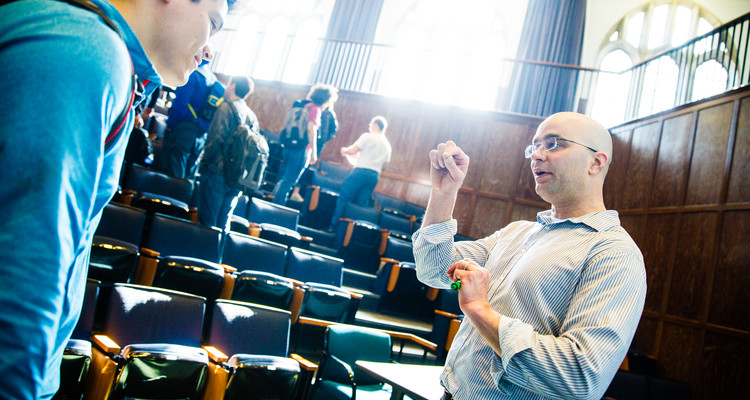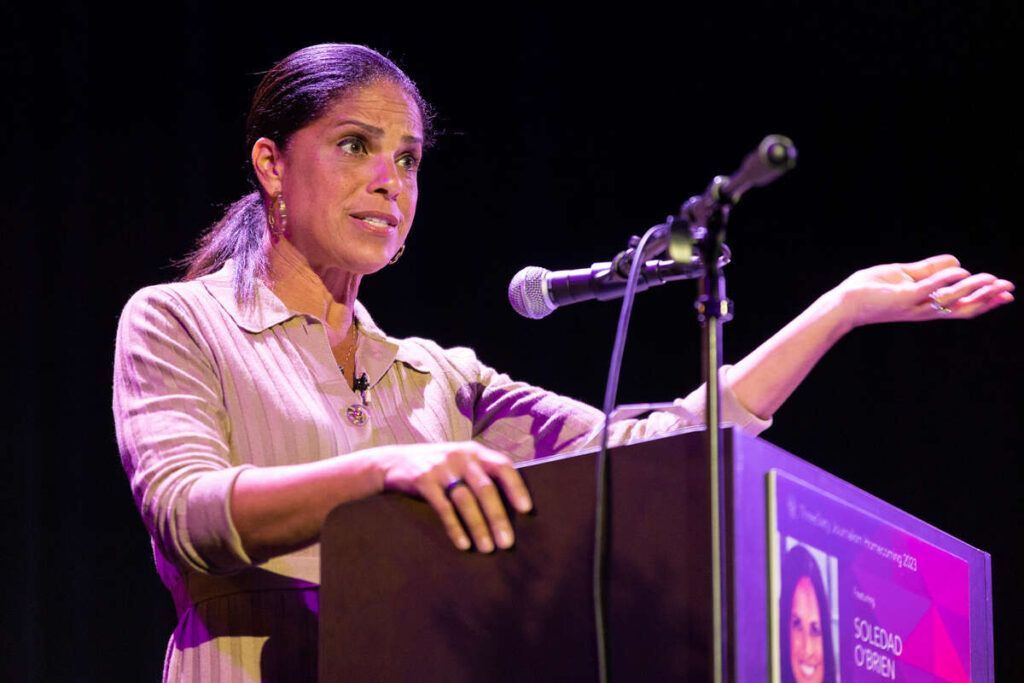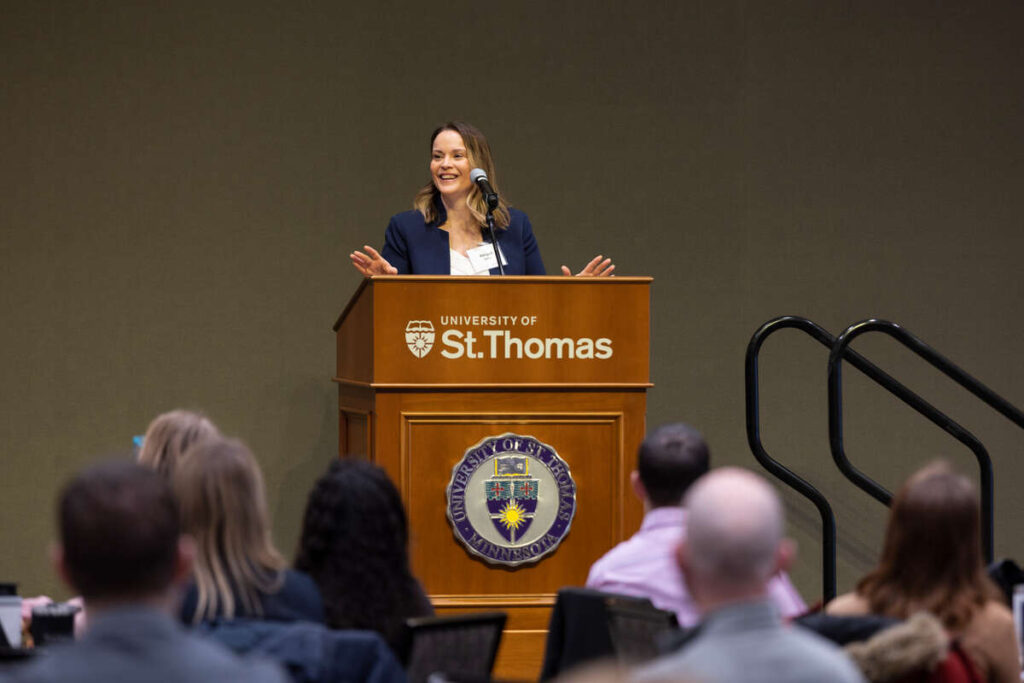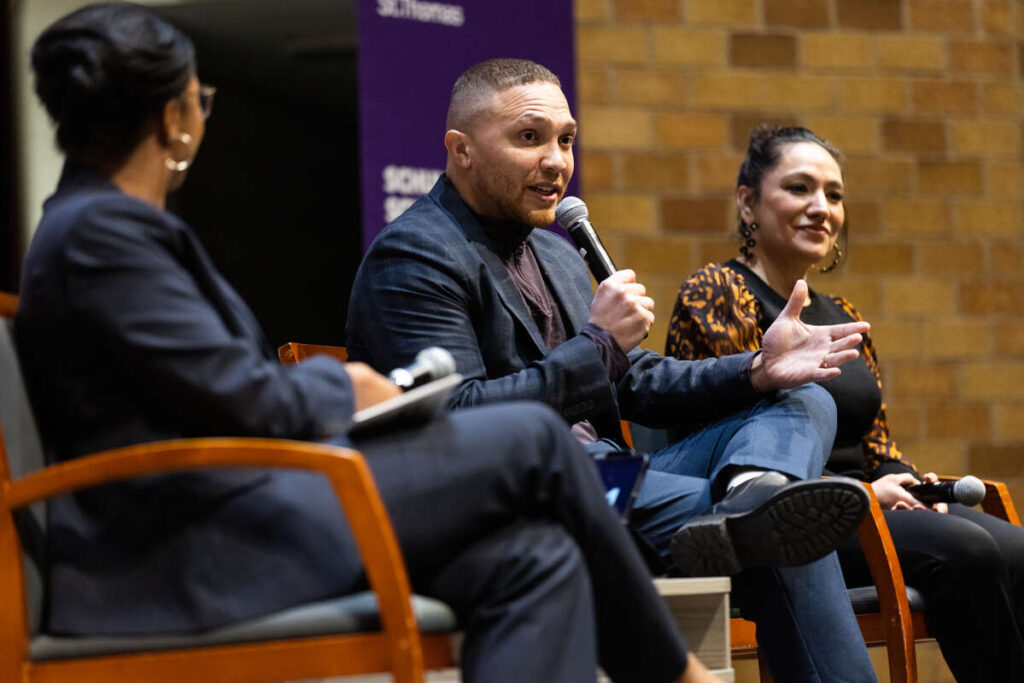U.S. Rep. Betty McCollum hosted a town hall forum on climate change at St. Thomas on Thursday, drawing hundreds of students, faculty and citizens to James B. Woulfe Alumni Hall. St. Thomas engineering professor John Abraham, who has extensive experience working with renewable energy around the world, and University of Minnesota professor Mark Seeley, most well known as the author of both editions of the Minnesota Weather Almanac, joined McCollum.
The Newsroom was on hand for the energetic affair and came away with five observations.
The politics of climate change are front and center, especially when a Congress member is your host
In today’s political climate seemingly anything can be a partisan divider, but climate change in particular has become a contentious issue in recent years. McCollum left no doubt as to her position, stating early in the hour-long gathering: “Climate change is real. Humans are the major contributors. I’m against apathy on this. We need to deal with what’s happening and act now.”
The stance was met with huge applause, as was Abraham’s more scientific-bent view 15 minutes later: “Greenhouse gases are not Republican or Democrat. They’re there.”
The statistics supporting climate change are striking
Both Abraham and Seeley relied heavily on scientific data during their presentations and offered plenty of striking illustrations for a phenomenon that has visible traces across the United States and the globe. Abraham pointed in particular to the measurements of rising CO2 levels, which have increased 40 percent since 1957, he said. Rising sea levels are also a point of concern, with up to 6 meters of rise projected by 2100, which, as he pointed out, would mean coastal cities such as Miami, or whole countries like Bangladesh, would simply cease to exist.
Minnesota in particular is having trouble
Seeley, Minnesota’s storied chronicler of weather for four decades, painted a dark picture of a warming and wetting state, citing the more than 17,000 climate records that were broken between the publishing of his first edition of Minnesota Weather Almanac in 2006 and its second in 2015. Mega-storms (instances of more than 6 inches of rain over 1,000 square miles) have been recorded seven times between 1860 and 2001, he said. Since 2002, there have been seven more.
“The consequences of climate change are very real and coherent to our lives,” he said.
The dialogue surrounding climate change isn’t all negative
McCollum, Abraham and Seeley all included areas of improvement in their remarks, from the ever-growing field of jobs in green energy to the more accessible options for consumers to move toward more sustainable forms of energy such as wind and solar. McCollum cited the state of Minnesota’s increase from 6 percent of its electricity being drawn from renewable sources in 2005 to 21 percent in 2015. Abraham talked about how much the economic outlook favors the continued development of renewable energy that will slow the human contributions to climate change.
“What do we do? We support people who take tough votes, but we can take action,” he said. “If we do nothing our emissions will rise … but we can do little things that add up. Think of it as not a silver bullet but silver buckshot.”
Climate change can take place inside a room talking about climate change
A standing-room-only crowd was on hand for the trio, which raised the temperature more than a few degrees over the course of an hour. That didn’t stop the crowd from responding enthusiastically to some of the more pointed and direct evidence and calls to action, and Abraham drew a chorus of laughs with a slide that featured former “The Daily Show” host Jon Stewart with his head in his hands, surrounded by the quote, “Climate change is a hoax. Because it’s cold. Where I live today.”
The size of the crowd was felt most poignantly when Seeley finished his remarks and received a standing ovation. “Thank you for the privilege of talking to you, thank you for the privilege of being your public servant for the last 40 years,” said Seeley, who is in his last year as a University of Minnesota professor.







